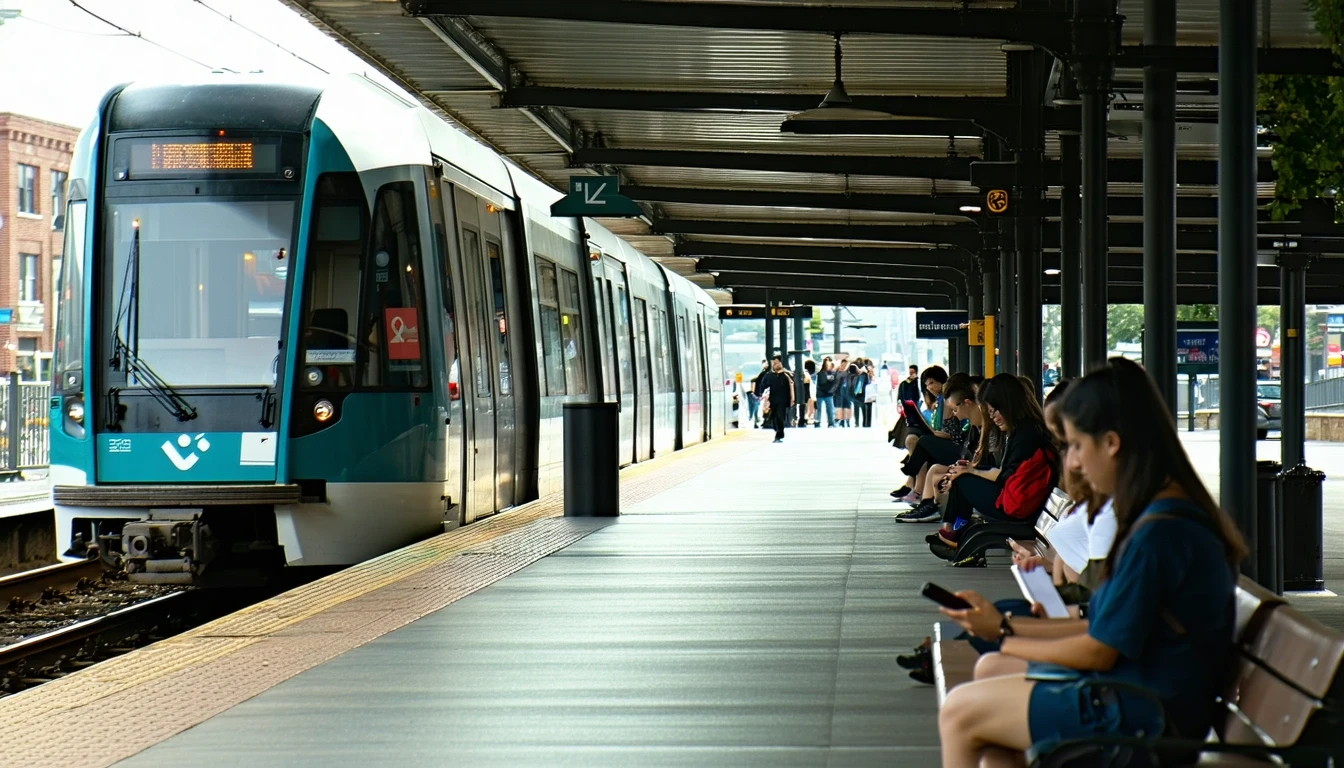
What You’ll Spend on Transit in Washington
Public transportation costs in Washington, DC remain affordable in 2025, with a variety of options to fit different commuting needs and budgets. The base fare for a Metrobus ride is $2.00, while Metrorail fares range from $2.25 to $6.00 depending on distance and time of day. With a cost of living index (COLI) of 152.1, overall expenses in DC trend well above the U.S. average, but the extensive transit network helps keep transportation costs manageable for many residents.
For frequent riders, investing in a monthly pass often provides the best value. A standard 30-day unlimited bus pass costs $72.00, while the Metrorail monthly pass ranges from $72 to $216 based on the number of fare zones covered. If your daily round-trip commute falls under $6.00, you’ll likely save money with the monthly option compared to paying per ride.
| Transit Mode | Coverage | Avg. Ride Time |
|---|---|---|
| Metrobus | 1,500 sq mi | 35 min |
| Metrorail | 117 mi | 27 min |
| DC Circulator | 10 routes | 20 min |
Transit Options Available
Washington’s transit system, primarily operated by the Washington Metropolitan Area Transit Authority (WMATA), is one of the most comprehensive in the United States. The network includes:
- Metrobus – Extensive bus coverage throughout DC and surrounding suburbs
- Metrorail – Six color-coded rail lines serving 91 stations
- DC Circulator – Ten routes providing local bus service within the District
- Capital Bikeshare – Over 4,300 bikes across 500+ stations for short trips
In addition to WMATA services, commuters can connect to nearby cities and employment hubs via regional bus providers like Ride On (Montgomery County), ART (Arlington), and Fairfax Connector. Many of these systems offer free transfers to and from Metrorail stations.
Monthly Cost Breakdown
To help you estimate your potential transit expenses, here’s a breakdown of what three common rider profiles might spend per month:
| Rider Profile | Monthly Transit Costs |
|---|---|
| 5-day commuter | $144 (Metrorail Select Pass) |
| Weekend rider | $36 (Metrobus 7-day pass x 4) |
| Car vs. transit | $216 transit pass vs. $368 for gas + parking* |
*Based on $4.19/gal gas price, 60 min daily driving commute, and $15/day parking. Actual costs vary.
Is Public Transit Worth It in Washington?
For many DC residents, using public transportation is more cost-effective than driving, especially when factoring in parking expenses, which can easily run $10-25 per day downtown. The average one-way bus commute in Washington takes about 35 minutes, while Metrorail riders spend a median of 27 minutes per trip.
Of course, transit accessibility and frequency vary by neighborhood. Dense, centrally-located areas like Dupont Circle, U Street, and Navy Yard offer ample bus and rail service, while outlying suburbs may have more limited options. In general, living near a Metro station provides the most flexibility and time savings for car-free commuting.
Ultimately, choosing between transit and driving involves weighing multiple factors like home and work location, schedule flexibility, and personal preferences. But strictly from a cost perspective, most Washingtonians can save hundreds per month by riding transit instead of driving and parking in the city.
Ways to Save on Transit
Fortunately, there are several ways to reduce your public transportation costs in DC:
- Choose a monthly SelectPass (rail) or unlimited bus pass if you ride frequently
- Set up SmartBenefits to allocate pre-tax dollars toward transit expenses
- Ride during off-peak hours (weekdays before 3pm or after 7pm) for lower fares
- Take advantage of free bus-to-rail and rail-to-bus transfers with SmarTrip
🏆 Tip: DC commuters who switch from per-ride fares to an unlimited Metrobus pass can save over 30% per month.
FAQs About Transit in Washington
What’s the cheapest way to get around Washington?
For short trips, Capital Bikeshare offers affordable 30-minute rides for just $1.00. Otherwise, Metrobus provides the lowest cost per ride at $2.00. Metrorail fares start slightly higher at $2.25 but may be faster for longer distances.
Does Washington offer monthly passes for transit in 2025?
Yes, WMATA provides a range of monthly pass options including the Metrobus unlimited pass ($72) and Metrorail SelectPass (priced by zone, from $72 to $216). 30-day passes often provide savings over individual ride fares.
How does the cost of public transit in DC compare to driving?
Riding transit is almost always cheaper than driving and parking in Washington. With gas prices over $4.00/gal and daily parking fees of $10+, even an unlimited monthly rail pass ($216) is more affordable for most commuters.
Is public transportation reliable for daily commuting in Washington?
With extensive Metrobus and Metrorail coverage, DC’s transit system is considered reliable for daily commuting, particularly in centrally-located neighborhoods. However, service frequency and hours vary by route, so it’s best to check timetables in advance.
Getting Around Smarter in Washington
As you weigh the costs and benefits of public transit in DC, consider how proximity to bus and rail lines impacts your monthly expenses. For example, moving from a $1,800/month apartment in a transit-sparse suburb to a $2,200 place near Metro Center could actually lower your total bills by reducing transportation costs.
Of course, the decision also depends on your unique commuting needs and lifestyle preferences. But for many Washingtonians, riding transit offers an affordable, eco-friendly alternative to battling Beltway traffic. If you expect to take transit regularly, budget $140-$220 per month for passes. Occasional riders can likely get by with under $100 in fares.
The key is finding a housing and transportation balance that fits your priorities. Explore the full cost of living in different DC neighborhoods to understand your options. With some smart planning, you can enjoy all the District has to offer without breaking the bank on getting around.
